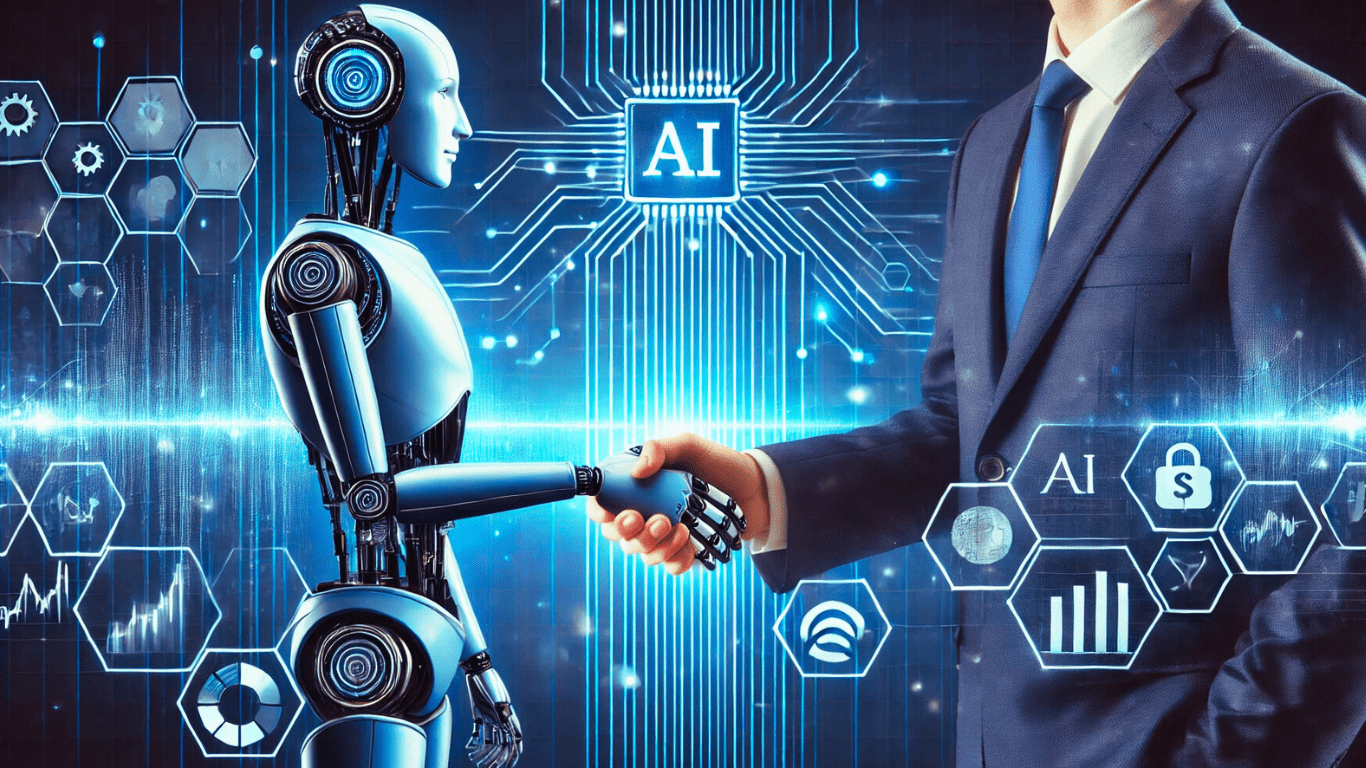In recent years, AI in algorithmic trading has emerged as a transformative force in the financial markets. By leveraging advanced technologies, traders and investors can now make more informed decisions, enhancing their profitability and reducing risks. In this article, we will delve into how AI is reshaping the landscape of trading and what it means for the future of finance.

Understanding the Basics of Algorithmic Trading
Before diving into the role of AI, it’s crucial to understand what algorithmic trading entails. At its core, it involves using computer algorithms to execute trades based on predetermined criteria. These algorithms analyze market data, identify trading opportunities, and execute trades at optimal prices. The goal is to maximize profits and minimize human intervention.
The Role of AI in Algorithmic Trading
Enhancing Decision-Making Processes
AI brings a new dimension to algorithmic trading by enhancing decision-making processes. Through machine learning and data analysis, AI systems can process vast amounts of data in real-time, identifying patterns and trends that humans might miss. This capability enables traders to make more informed decisions and respond swiftly to market changes.
Reducing Risks and Enhancing Efficiency
One of the significant advantages of using AI in trading is its ability to reduce risks. By analyzing historical market data and simulating various scenarios, AI algorithms can assess potential risks and devise strategies to mitigate them. Additionally, automation enhances trading efficiency by executing trades at optimal times and prices, eliminating human errors.
The Technology Behind AI in Algorithmic Trading
Machine Learning and Data Analysis
Machine learning is a subset of AI that plays a pivotal role in algorithmic trading. It involves training algorithms to recognize patterns and make predictions based on historical data. By continuously learning from new data, these algorithms improve their accuracy over time, providing traders with valuable insights.
Natural Language Processing
Another critical technology is Natural Language Processing (NLP). NLP enables AI systems to understand and interpret human language, allowing them to analyze news articles, social media posts, and financial reports. This capability helps traders gauge market sentiment and anticipate price movements.
Real-World Applications of AI in Trading
High-Frequency Trading
High-Frequency Trading (HFT) is one of the most prominent applications of AI in trading. It involves executing a large number of trades in fractions of a second, leveraging speed and automation to capitalize on small price discrepancies. AI algorithms analyze market data and execute trades at lightning speed, maximizing profits.
Portfolio Management
AI is also revolutionizing portfolio management. By analyzing historical performance and market trends, AI systems can recommend optimal asset allocation strategies. This approach helps investors diversify their portfolios and achieve their financial goals.
The Benefits of AI in Algorithmic Trading
Improved Accuracy and Precision
One of the most significant benefits of using AI is its ability to enhance accuracy and precision in trading. By analyzing vast amounts of data and considering numerous factors, AI algorithms can make highly informed decisions, reducing the likelihood of errors.
Automation and Speed
Automation is a key advantage of AI in trading. By executing trades automatically, AI systems eliminate the need for manual intervention, reducing human errors and improving efficiency. Additionally, these systems can execute trades at lightning speed, capitalizing on fleeting market opportunities.
Challenges and Considerations
Data Quality and Integrity
Despite its advantages, the use of AI in trading presents challenges. Ensuring data quality and integrity is paramount, as inaccurate or biased data can lead to erroneous decisions. Traders must carefully curate and validate their data sources to maintain reliability.
Regulatory Compliance
Regulatory compliance is another critical consideration. As trading becomes increasingly automated, regulatory bodies are closely monitoring AI-driven activities to ensure market stability and fairness. Traders must adhere to regulations and maintain transparency in their operations.
The Future of AI in Algorithmic Trading
Continuous Advancements
The future of AI in trading is promising, with continuous advancements in technology. As AI algorithms become more sophisticated, traders can expect even greater accuracy and efficiency in their strategies. This progress will likely lead to further democratization of trading, making it accessible to a broader range of investors.
Integration with Other Technologies
The integration of AI with other technologies, such as blockchain and IoT, is an exciting prospect. These synergies could enhance data security, transparency, and trading efficiency, opening new avenues for innovation in the financial markets.
Conclusion
In conclusion, AI in algorithmic trading is reshaping the financial landscape by enhancing decision-making, reducing risks, and improving efficiency. As technology continues to evolve, traders and investors must adapt to these changes and embrace the opportunities presented by AI-driven trading strategies. To learn more about the impact of AI on financial markets, you can visit the IMF’s insights on AI and financial stability.

FAQs
What is algorithmic trading?
Algorithmic trading involves using computer algorithms to execute trades based on predefined criteria. These algorithms analyze market data and execute trades at optimal prices.
How does AI enhance algorithmic trading?
AI enhances algorithmic trading by improving decision-making processes, reducing risks, and automating trade execution. It analyzes vast amounts of data to identify patterns and trends.
What are the challenges of using AI in trading?
The challenges of using AI in trading include ensuring data quality and integrity, maintaining regulatory compliance, and addressing ethical considerations related to algorithmic decision-making.
What is the future of AI in trading?
The future of AI in trading is promising, with continuous advancements in technology. Traders can expect greater accuracy and efficiency in their strategies, along with new opportunities for innovation.






